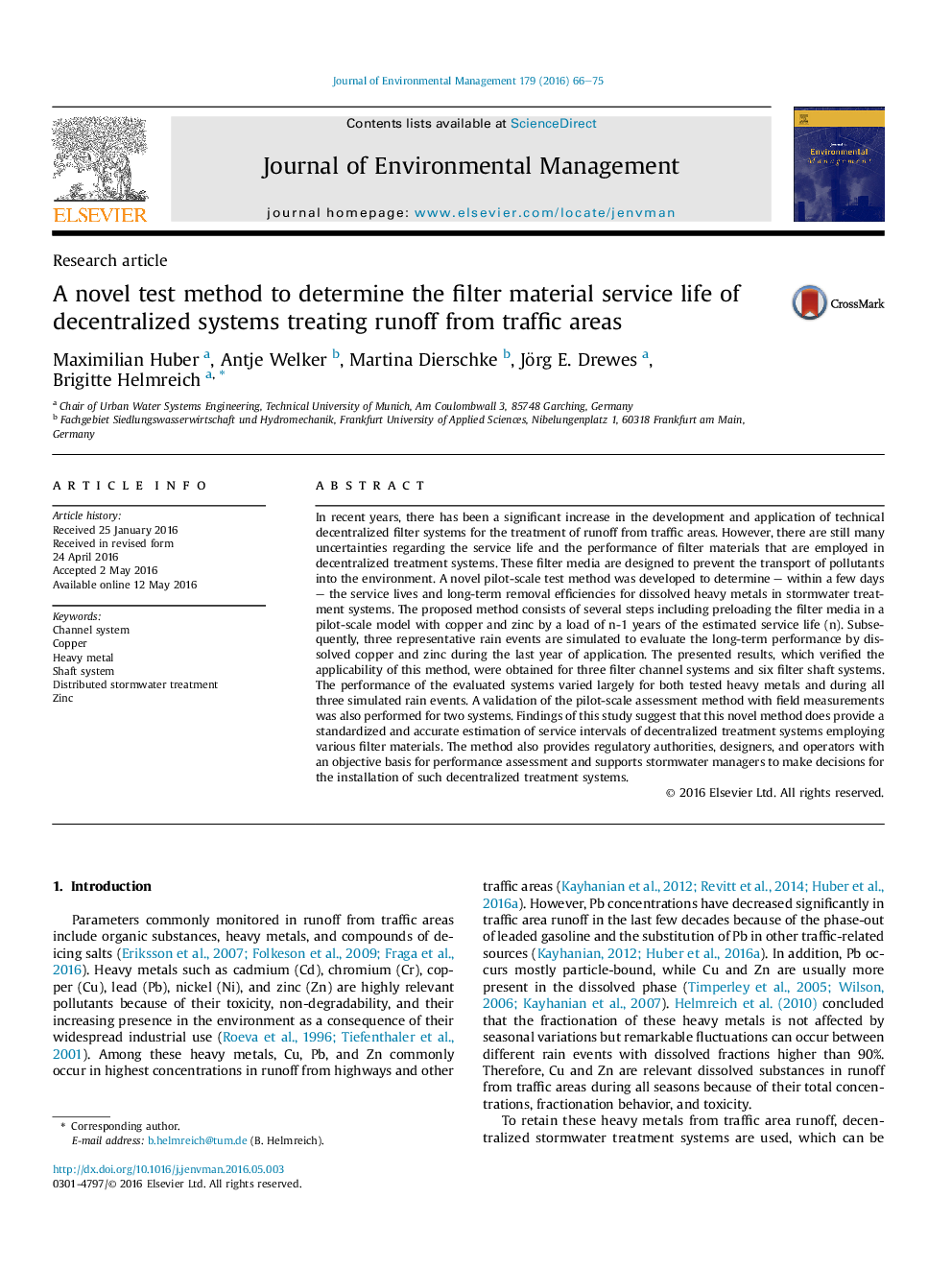| Article ID | Journal | Published Year | Pages | File Type |
|---|---|---|---|---|
| 1055348 | Journal of Environmental Management | 2016 | 10 Pages |
•Development of a pilot-scale performance assessment method for various filter media.•Applicability to a wide range of systems: channels, shafts, and permeable pavements.•Rapid evaluation of long-term performance and service life of all systems.•Assessment of metal retention criteria based on stormwater treatment guidelines.•Validation of the novel method by field measurements of two different systems.
In recent years, there has been a significant increase in the development and application of technical decentralized filter systems for the treatment of runoff from traffic areas. However, there are still many uncertainties regarding the service life and the performance of filter materials that are employed in decentralized treatment systems. These filter media are designed to prevent the transport of pollutants into the environment. A novel pilot-scale test method was developed to determine – within a few days – the service lives and long-term removal efficiencies for dissolved heavy metals in stormwater treatment systems. The proposed method consists of several steps including preloading the filter media in a pilot-scale model with copper and zinc by a load of n-1 years of the estimated service life (n). Subsequently, three representative rain events are simulated to evaluate the long-term performance by dissolved copper and zinc during the last year of application. The presented results, which verified the applicability of this method, were obtained for three filter channel systems and six filter shaft systems. The performance of the evaluated systems varied largely for both tested heavy metals and during all three simulated rain events. A validation of the pilot-scale assessment method with field measurements was also performed for two systems. Findings of this study suggest that this novel method does provide a standardized and accurate estimation of service intervals of decentralized treatment systems employing various filter materials. The method also provides regulatory authorities, designers, and operators with an objective basis for performance assessment and supports stormwater managers to make decisions for the installation of such decentralized treatment systems.
